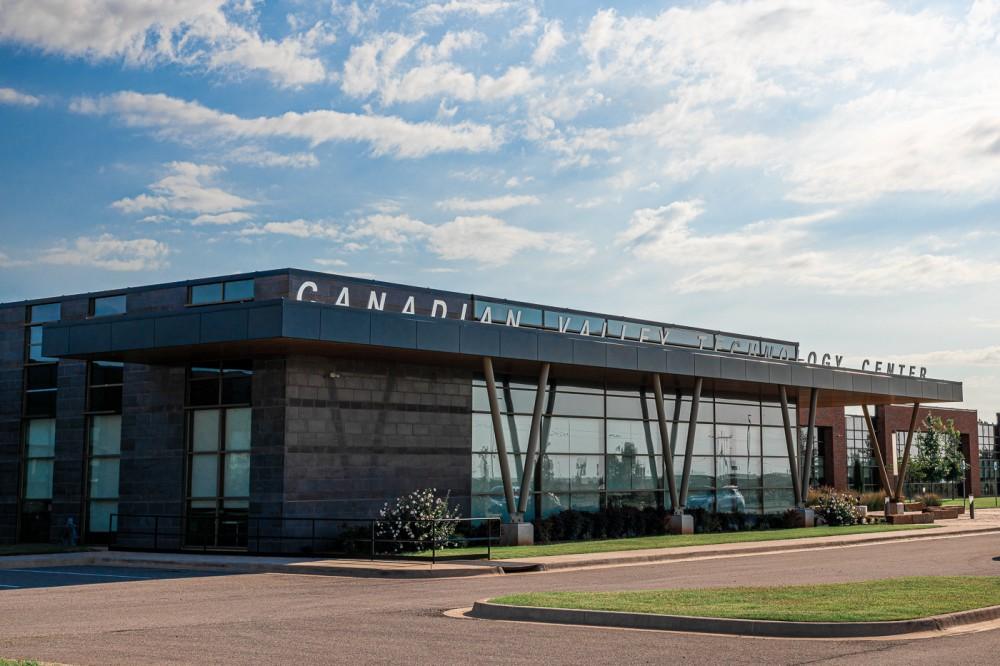Marvin Novak has farmed in southwest Yukon for decades. At age 85, he still enjoys the process of plowing, planting and patiently waiting for harvest.
Novak applied farm logic to education while serving on the very first board of education at Canadian Valley Technology Center.
“Hard to believe that was 50 years ago,” Novak said recently after a day of field discing in preparation for the next growing season.
CV Tech opened its doors in August 1970 with campuses in Chickasha and El Reno. A third campus was added in 2008, in Yukon, to accommodate rapid growth on the north side of the district area. The school’s mission was then as it is today – to prepare people to succeed through quality career and technical education programs and services.
The year 2020 marks a milestone season for the school, which began because of the efforts of superintendents at eight high schools. They pushed for an election in January 1968 so area citizens could choose a board to oversee development of an “area school.” This school’s focus would be teaching workplace skills at one location for students from several communities.
These administrators knew their schools lacked individually what an area school could offer collectively to properly educate future electro-mechanical technicians, drafters, mechanics, nurses, office workers, welders and more. Students had plenty of options for higher education but not as many for “hire” education. Many unfilled jobs at the time required technical knowhow and specific skills that were not being taught at colleges.
Novak successfully campaigned for a board seat and was elected as the first president of the board as it met for the first time in February 1968 at the Canadian County Courthouse in El Reno. He credits these superintendents for desiring an adequate facility with modern equipment and instructors to teach in-demand skills.
First Year: 56 Meetings
Much planning was involved before construction, Novak said. There were 56 board meetings the first year and a trip to California so board members could study area schools already opened.
“That’s where we learned how to operate it,” Novak said.
The name “Canadian Valley” was chosen by the board to reflect the area from which students would be coming to the school, he said. The North and South Canadian rivers dissect the district, which stretches from Piedmont south to Rush Springs and from Calumet east to Bethany.
An election to provide an operational levy was approved by 87 percent of area voters in April 1968. A 60-acre farm in El Reno was purchased from Walter Evans. In February 1969, superintendents of six school districts in the Chickasha area formally requested to join Canadian Valley’s area school. An April election provided additional funding so a similar facility could be built in Chickasha on a 6-acre site purchased from Lena Austin.
Facility construction proceeded swiftly. Canadian Valley Vocational-Technical Area School No. 6 (now Canadian Valley Technology Center) opened in August 1970 – five decades ago.
Educational Evolution
Today, Canadian Valley serves hundreds of students each year. Students come from 14 area high schools. Adults also may enroll in several of the nearly two dozen full-time programs, which operate from August through May.
Dozens of short-term classes also operate mostly at night throughout the year. Canadian Valley’s Workforce Development team within the Business and Industry Services division provides customized training year-round to boost economic development for area businesses.
CV Tech unchanging mission contributes mightily to why the school remains an integral part of a 1,500-square-mile area, said Dr. Gayla Lutts, the school’s fifth superintendent.
“It has always been and continues to be about preparing students for current and future workforce demands,” Lutts said. “I am proud of the quality education, skills and certifications we provide students and the valuable partnerships we maintain with our local businesses.”
Lutts said most aforementioned programs that were critical 50 years ago are still critical today in terms of economic development impact.
“The curriculum, techniques and technological advances have transformed the programs,” she said. “We remain on the cutting edge of innovative practices, preparation and knowledge.
“It takes a quality staff at all levels to ensure quality education is taking place. Our staff is focused on creating a healthy, inclusive culture of continuous improvement where the students are at the center of all of our decisions.”
Lutts touts newer programs meet the needs of our current workforce demands, such as the Biomedical Sciences and Pre-Engineering academies and a handful of new health programs for adult students, which are set to launch next year at the Yukon location. The school is also working on a new partnership with Southwestern Oklahoma State University on a Practical Nurse-to-Bachelor of Science in Nursing program.
“The fact is we’re not able to celebrate our 50th anniversary the way we had envisioned,” Lutts said. “But that doesn’t mean we aren’t taking an opportunity to reflect on our roots. This is a great time to remember where we have been, where we are and where we are going.”

